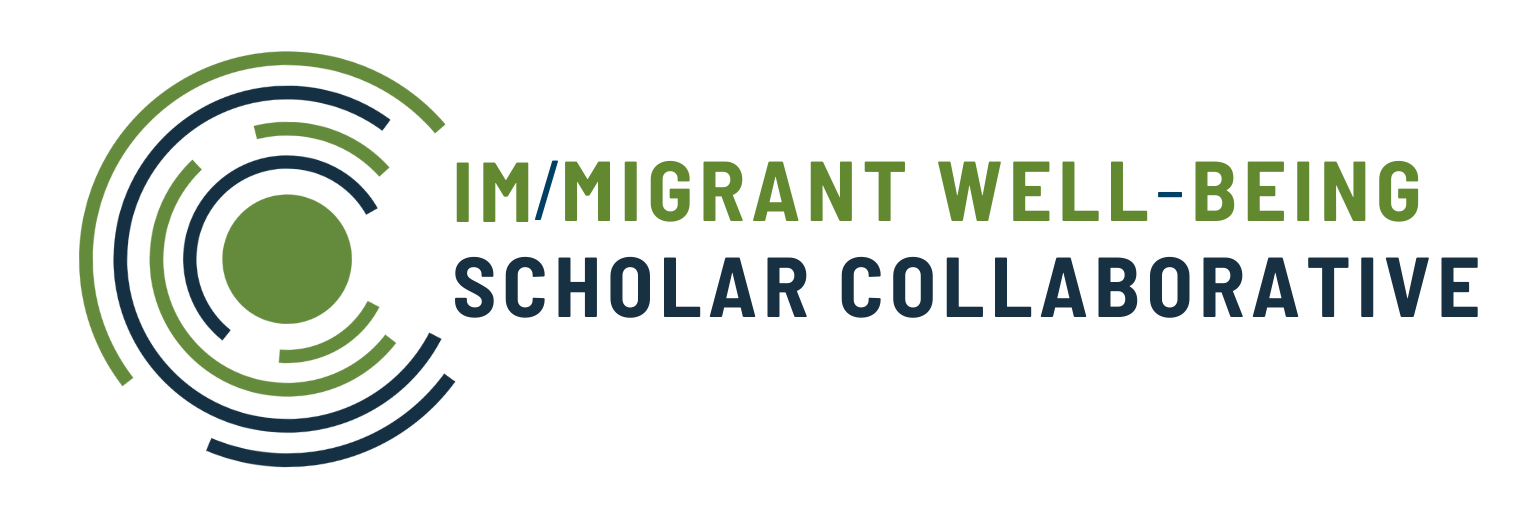By Sophia Benavente and Thomas J. Rachko, Jr.
A new report by researchers at the Im/migrant Well-Being Research Center (IWRC) at the University of South Florida (USF) finds that the impacts of Florida Senate Bill 1718 (SB 1718) are far reaching. The law’s impacts include financial stress, hesitation to seek medical treatment, psychological distress, and “spillover effects” to U.S. citizens. The report, part of a collaborative research study known as the Florida Immigration Policies Project, surveyed 466 immigrants – both documented and undocumented community members – from 31 different countries to examine the impacts of the bill on well-being.
Florida Senate Bill 1718 was signed into law in May 2023 by Governor Ron DeSantis. As the report entitled, “The Impacts of Florida’s SB 1718 on Immigrants’ Well-Being” explains, the bill enforces “strict immigration provisions that criminalize the transportation of undocumented individuals, mandate E-Verify for larger employers, and require information about immigrants’ legal status when seeking healthcare services.”
Against the backdrop of the anti-immigrant rhetoric surrounding the passage of SB 1718, the researchers interviewed Florida’s diverse immigrant population amid a state of fear and uncertainty stemming from the bill. The survey conducted from May 2024 to July 2024 was administered with a focus on meeting people where they are within their communities at places like local businesses and given the sensitive information involved, a prioritization on building trust and rapport with participants.
For example, as report co-author Liz Ventura Molina, Research Associate for the IWRC at USF and Research Development Lead at the Im/migrant Well-Being Scholar Collaborative, explained, “One of our key recruitment sites was a botanica, a type of store that sells religious and spiritual items and serves as a cultural center for many immigrants. The botanica provided a safe and familiar space for participants… In addition to the botanica, we visited other businesses in the plaza, such as a local financial services shop where immigrants send money to their home countries, a hair salon, and a barbershop.”
Ultimately, the measures taken to establish trust allowed for a robust sample size of nearly 500 people and immigrant participants to share vital information despite the challenges SB 1718 has posed. The researchers also partnered with several nonprofit organizations including Faith in Florida, Mujeres Restauradas por Dios, Hispanic Services Council, and NicerFL to recruit participants.
“Community outreach and education are crucial for reducing fear and misinformation,” Liz Ventura Molina, a public health expert, expressed when outlining the steps policymakers, advocates, and community organizations should take to address the heightened stress and fear in im/migrant communities. When it comes to seeking medical treatment, Ventura Molina suggests there’s an important role for healthcare providers to play in supporting immigrant communities: “Healthcare providers can be educated and encouraged to remind patients of their rights, including the right to refuse to answer questions about their immigration status. This can help build trust and reduce fear in clinical settings, ensuring that immigrants feel safe seeking care.”
Dr. Elizabeth Aranda, professor of sociology in the College of Arts and Sciences at USF, Director of the IWRC at USF, and Co-Chair of The Collaborative, co-authored the report. The report builds upon her decades-long body of research about the effects of immigration policies and programs on immigrants’ well-being. She emphasized the bill’s “spillover effects” or effects of the law on those that were not intended targets, “SB 1718’s effects not only affect undocumented immigrants, but also documented ones and US citizens. The law does not just limit human and social rights for immigrants, but it also is limiting the rights of US citizens.”
“The law has instilled fear in immigrants and U.S. citizens that are part of mixed status families. The law’s provisions have had a chilling effect on members of mixed status families.” In Florida, one in 10 people are noncitizen immigrants, and 17% or over 740,000 children have at least one noncitizen parent.
As Dr. Aranda and Ventura Molina wrote in an op-ed published in January 2025 in Newsweek regarding the bill’s spillover effects:
“[A] critical flaw in policies like SB 1718 and potential national-level crackdowns—[is that] their impacts are not limited to immigrants. Mixed-status families will bear the brunt of enforcement efforts, deepening inequalities, and increasing suffering. As President Donald Trump attempts to make the country like Florida, he has even floated the idea of expelling not only undocumented immigrants, but their U.S. citizen kin too.”
The report’s survey uncovered findings consistent with Dr. Aranda’s previous studies on immigrant well-being, as she shared, “Despite the difference in methods, consistent with previous studies, this report shows that restrictive immigrant policies are associated with great psychological distress.”
The report’s authors hope to take the insights of the Florida Immigration Policies Project and the findings of their reporting to policy-makers, advocates, the academic community, and community members to address the needs of immigrant communities.
Read the full report here: The Impacts of Florida’s SB 1718 on Immigrants’ Well-Being
Learn more about the IWRC here: Im/migrant Well-Being Research Center (IWRC)
Sophia Benavente-Sayani is a Cisneros Scholar at the George Washington University and serves as the Law and Policy Intern at the Im/migrant Well-Being Scholar Collaborative. She assists in creating public-facing law and policy analysis on issues impacting im/migrant well-being in the United States.
Thomas J. Rachko, Jr. serves as the Policy Lead at the Im/migrant Well-Being Scholar Collaborative. He leads policy efforts alongside affiliate scholars to translate academic research in accessible ways for policymakers, advocates, and community based organizations to make change.
Thank you for reading IWB ¡Hablemos!, an interview series that explores the multifaceted nature of immigration studies, advocacy, partnership, and more. Interested in being featured? Email us at admin@iwbcollab.org.

